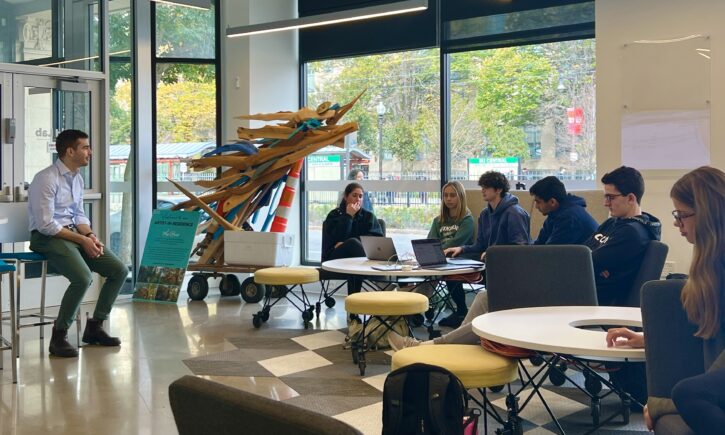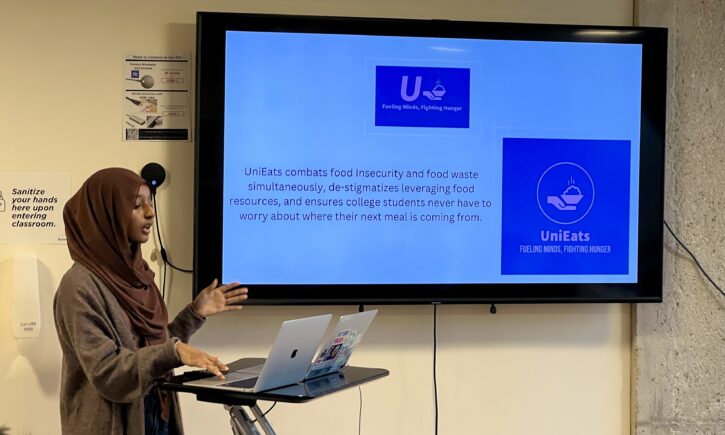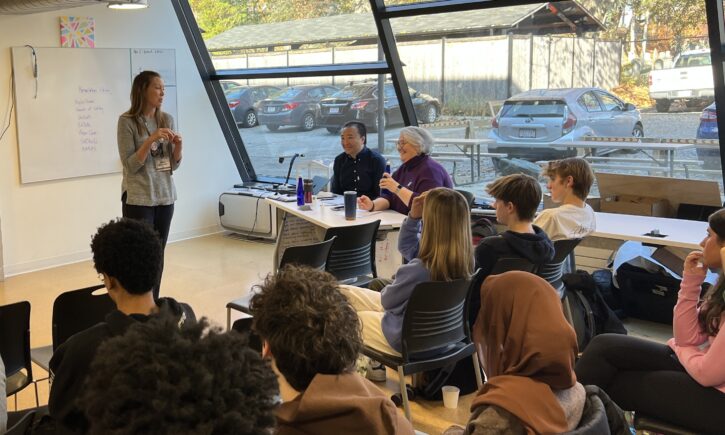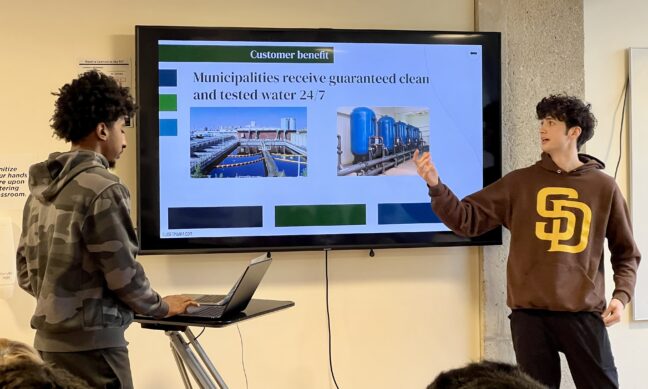Class: Entrepreneurship with a Purpose (BVR-X)
Grade: Upper School
Teacher: Blake St. Louis
Entrepreneurship with a Purpose students applied a trimester full of exploring business practices and social entrepreneurship to an assignment that tasked them with creating social enterprises of their own. The primary focus of the assignment was to develop a social enterprise that connects with a United Nations Sustainable Development Goal relevant to the students’ interests and lived experiences. At the end of the process, each student group presented their ideas to panelists and their fellow classmates.

Prior to the assignment, the class had the opportunity to visit the BUild Lab at Boston University to hear from student entrepreneurs and participate in a business simulation. Students competed in teams to see which simulated business could leverage data and market trends to generate the most revenue. Following this, the class asked questions to BU student entrepreneurs about the challenges and advantages of running a business as a student.
Back at Beaver, students kickstarted the social enterprise assignment by researching primary and secondary sources that highlighted their chosen Sustainable Development Goal. By developing a deeper understanding of each issue and the people affected, students began to consider what audiences their enterprises would be marketed towards. Each group prototyped products and services, brainstormed social business model canvas elements, and developed plans for a formal pitch presentation.

During the final presentations, it became clear that each group was hoping to accomplish very different objectives. Sebah Beshir ’24 shared her vision for UniEats, a food delivery app that salvages meals for students experiencing food insecurity. Ana Gardner ’24 and Caleb Newman ’24 detailed a line of products entitled GolfShield that could protect golfers from the pesticides and irritants of modern golf courses. Aqua-Clean, an advanced filtration system targeting PFAs in our water system, was shared by Cam Cost ’24 and Wyatt Stephens ’24.
Throughout each presentation, students answered many of the following questions:
- What’s the problem you are hoping to solve, who is affected, and why should we care?
- Who are your potential users, beneficiaries, and/or customers?
- What is a unique product or service that would address this challenge?
- What’s your social business model?
- Why do you care about this and what would you do next?

Jess McLear P’20 & ’23, Chief Operating Officer at KnipBio, and David Chang P’25, General Manager for Expert Network at Hunt Club, served as panelists for the final presentations. The two shared their feedback with each group and asked probing questions to learn more about each enterprise. By hearing how their ideas could be improved upon, each group walked away with a better understanding of how their enterprise would function in the real world.
More about this course: Can entrepreneurship be the response to local and global challenges? Can it serve a purpose beyond being just a money-making endeavor? In this class, you will learn about how businesses are created and why some thrive and others fail. You will also design ideas to start your own business with empathy and a purpose in mind; business ideas that can have a meaningful, positive impact on others. This social entrepreneurship course will look at the change-making potential of people to pursue ideas, solutions, philanthropy and advocacy. You will hear from experts; analyze how businesses operate; explore Boston’s thriving entrepreneurship ecosystem; and brainstorm your own startup idea. This class will allow you to present your ideas to investors and organizations that look for purposeful social entrepreneurs to make a difference.

